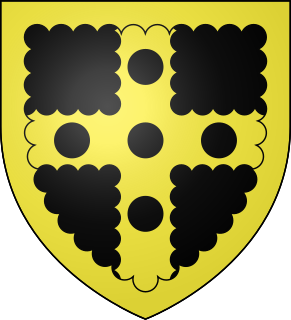A Quote by Fulke Greville, 1st Baron Brooke
Man is the only creature endowed with the power of laughter; is he not also the only one that deserves to be laughed at?
Related Quotes
There is laughter that goes so far as to lose all touch with its motive, and to exist only, grossly, in itself. This is laughter at its best. A man to whom such laughter has often been granted may happen to die in a work-house. No matter. I will not admit that he has failed in life. Another man, who has never laughed thus, may be buried in Westminster Abbey, leaving more than a million pounds overhead. What then? I regard him as a failure.
Existence loves laughter. You may have observed, or not, that man is the only animal in the whole of existence who is capable of laughing. Laughter is the only distinguishing mark that you are not a buffalo, you are not a donkey; you are a human being. Laughter defines your humanity and your evolution. And the greatest laugh is at your own ridiculous things.
Salt is the only rock directly consumed by man. It corrodes but preserves, desiccates but is wrested from the water. It has fascinated man for thousands of years not only as a substance he prized and was willing to labour to obtain, but also as a generator of poetic and of mythic meaning. The contradictions it embodies only intensify its power and its links with experience of the sacred.
Life consists of sadness too. And sadness is also beautiful; it has its own depth, its own delicacy, its own deliciousness, its own taste. A man is poorer if he has not known sadness; he is impoverished, very much impoverished. His laughter will be shallow, his laughter will not have depth, because depth comes only through sadness. A man who knows sadness, if he laughs, his laughter will have depth. His laughter will have something of his sadness too, his laughter will be more colorful.
For the essence of sin is man substituting himself for God [Gen. 3:1-7], while the essence of salvation is God substituting himself for man [2 Cor. 5:21]. Man asserts himself against God and puts himself where only God deserves to be; God sacrifices himself for man and puts himself where only man deserves to be.
Therefore, if the earthly power errs, it shall be judged by the spiritual power ... but if the supreme spiritual power errs it can be judged only by God, and not by man ... Therefore we declare, state, define and pronounce that it is altogether necessary to salvation for every human creature to be subject to the Roman pontiff.
Nature is the system of laws established by the Creator for the existence of things and for the succession of creatures. Nature is not a thing, because this thing would be everything. Nature is not a creature, because this creature would be God. But one can consider it as an immense vital power, which encompasses all, which animates all, and which, subordinated to the power of the first Being, has begun to act only by his order, and still acts only by his concourse or consent ... Time, space and matter are its means, the universe its object, motion and life its goal.
































